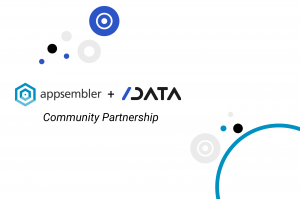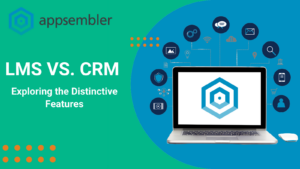Building a strong developer community should form a major part of your technical and developer marketing strategy. Developers often choose products based on recommendations from their peers that they receive in communities.
Developers talk to each other about issues such as, what works, what helps you scale, and what the support was like. If you’re a developer-first company, you want to be a part of that community. You want to hear what they are saying and understand their concerns.
If your company takes part in technical conversations (wherever your product’s developers are having them) and adds value as product experts and thought-leaders, you can gain the trust of developers and build a reputation for prioritizing your developers’ needs.
A developer community also gives developers a place where they can seek help with your product. Enabling peer-to-peer discussions creates transparency about your product’s capabilities and limitations because developers have higher confidence in their peers’ first-hand experience with your product than what your marketing collateral says.
Here are the top communities technical marketers can use to engage with developers and reap the benefits.
1. Stack Overflow
Stack Overflow is one of the most popular developer communities out there and one that any developer-first company needs to take note of. The site is mostly known for its public Q&A platform where developers and other users can ask questions and share technical knowledge. More than 100 million people visit the site every month.
Stack Overflow also offers several useful tools for developers. If you’re in developer marketing, you should take note of Stack Overflow Collectives, which are communities for specific technologies. Developers can get answers from and engage with product experts, and share knowledge about the platforms they are using. Visit the communities that are related to the product you’re marketing to learn what developers are discussing and find possible marketing ideas/opportunities.

2. GitHub
GitHub serves a different purpose from the other communities on this list. While there is a community forum for asking questions and sharing expertise, GitHub primarily serves as a place where developers and companies can share code to build and maintain products.
It’s a useful space for technical marketers, because if you open-up your source code to developers and share it on GitHub, then they can see how your product works, and play around with it to the point of making new feature suggestions or providing feedback about your product’s code. Developers can help you improve your product and also ensure that you are building something that they want to use.
3. Reddit
Reddit is a well-known platform home to a vast array of different communities. These communities, which are called Subreddits, are often very active and have lively discussions. Reddit is a mainstream platform with a lot of users, so you can easily find a community to engage with your target audience. You can follow multiple communities to ensure you always stay up to date with the latest activity and can respond with tips and advice where relevant.
Some of the most useful developer and technical communities include:
- /r/engineering
- /r/learnprogramming
- /r/compsci
- /r/java
- /r/javascript
- /r/coding
- /r/machinelearning
4. DEV Community
DEV Community, which has an audience of almost 1 million developers, enables developers to write blog posts, share code, give feedback, and collaborate on building open-source software. It’s aimed at both skilled and newbie developers, which means you should be able to find your audience in the community, no matter what persona you’re aiming your technical marketing program at.

5. Code Project
Code Project has several useful features that can help technical marketers engage with developer communities. In the Quick Answers section, users can post questions to get help and expert advice from other developers on problems they are having with coding.
The articles section lets you submit your code along with documentation explaining what the code does, and how developers can use it, then get feedback from other users on the code’s quality. The Code Project community brings together developers to discuss a wide range of topics, ranging from programming languages to databases and system administration.
6. Codementor Community
The Codementor Community plays host to a variety of different developers, working in-house and freelance, specializing in a range of programming languages, and with differing levels of experience and expertise. The community lets you exchange ideas and share insights.
As a technical marketer, you can choose to become a developer mentor so you can help less experienced developers to learn and develop their careers.
7. Hashnode
Hashnode is useful in helping you filter the kind of developer communities you want to reach. You can filter posts by hashtag and only see articles and questions related to these products, as well as follow specific authors if you think they are relevant to your technical marketing efforts. For example, you can follow hashtags, such as:
- #Javascript
- #web-development
- #python
- #learning
There are also product-related hashtags, such as #google-cloud-platform and #sap.
8.Coderwall
Coderwall is a basic developer forum where users ask questions and share tips on development issues and tools. You can share projects you’re working on and ask for feedback from fellow users.
If you want to get a better idea of what developers are talking about, you can follow the trending topics on the site.
9.CoffeeCup
Technical marketers who create a community around their own product, rather than contributing to one, will experience even greater developer success. CoffeeCup does just that. While it has a community dedicated to general web development topics, it also hosts a range of communities where you can discuss issues you have with the product and get an idea if it’s the right fit for your needs.
Both users and CoffeeCup staff are on hand to answer questions, so users know they’ll be getting an unbiased answer.
Add Value, Don’t Sell
Developer communities are different from other communities, and the places where you need to engage developers are always changing. It’s important to keep up with where they are spending their time, so you can continue to engage your community.
The purpose of building a community is to add value to the participants, not generate ROI. Some communities might be measurable for awareness (but not monetization), while other communities might be measurable for efficiency metrics, but not something else.
Remember that the community belongs to the developers. The developer community does not belong to you or your company. So ask developers what they need and what you can do for them, not vice versa.




